Filter by
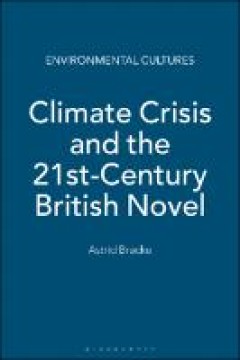
Climate Crisis and the 21st-Century British Novel
This book is available as open access through the Bloomsbury Open Access programme and is available on www.bloomsburycollections.com. The challenge of rapid climate change is forcing us to rethink traditional attitudes to nature. This book is the first study to chart these changing attitudes in 21st-century British fiction. Climate Crisis and the 21st-Century British Novel examines twelve works…
- Edition
- -
- ISBN/ISSN
- 9781474271141
- Collation
- -
- Series Title
- -
- Call Number
- -

A Grand Army of Black Men Letters from African-American Soldiers in the Unio…
The Civil War stands vivid in the collective memory of the American public. There has always been a profound interest in the subject, and specifically the participation of black Americans in and reactions to the war and the war's outcome. Almost 200,000 African-American soldiers fought for the Union in the Civil War. Although most were illiterate ex-slaves, several thousand were well-educated, …
- Edition
- -
- ISBN/ISSN
- 9780511663574
- Collation
- -
- Series Title
- Cambridge Studies in American Literature and Culture (63)
- Call Number
- -
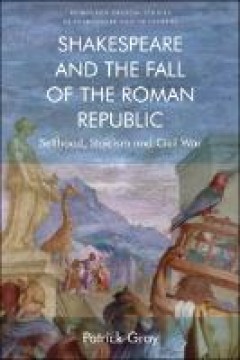
Shakespeare and the Fall of the Roman Republic
Explores Shakespeare's representation of the failure of democracy in ancient Rome This book introduces Shakespeare as a historian of ancient Rome alongside figures such as Sallust, Cicero, St Augustine, Machiavelli, Gibbon, Hegel and Nietzsche. It considers Shakespeare’s place in the history of concepts of selfhood and reflects on his sympathy for Christianity, in light of his reception of me…
- Edition
- -
- ISBN/ISSN
- 9781474427487
- Collation
- -
- Series Title
- -
- Call Number
- -

A Feminine Enlightenment British Women Writers and the Philosophy of Progres…
Drawing on original archival research, A Feminine Enlightenment argues that women writers shaped Enlightenment conversations regarding the role of sentiment and gender in the civilizing process. By reading women's literature alongside history and philosophy and moving between the eighteenth century and Romantic era, JoEllen DeLucia challenges conventional historical and generic boundaries. Begi…
- Edition
- -
- ISBN/ISSN
- 9780748695959
- Collation
- -
- Series Title
- -
- Call Number
- -

Facing Poetry Alexander Gottlieb Baumgarten's Theory of Literature
What is Literature? According to Alexander Gottlieb Baumgarten, Literature is perfect sensate discourse. Based on this insight Baumgarten offers the first modern theory of literature. His uniquely holistic approach encompasses a methodology, epistemology, metaphysics, narratology, and ethics.
- Edition
- -
- ISBN/ISSN
- -
- Collation
- -
- Series Title
- -
- Call Number
- -

Not Hockey Critical Essays on Canada’s Other Sport Literature
In this carefully curated collection of essays, editors Jamie Dopp and Angie Abdou go beyond their first collection, Writing the Body in Motion, to engage with the meaning of sport found in Canadian sport literature. How does “sport” differ from physically risky recreational activities that require strength and skill? Does sport demand that someone win? At what point does a sport become an …
- Edition
- Angie Abdou and Jamie Dopp
- ISBN/ISSN
- 9781771993784
- Collation
- -
- Series Title
- -
- Call Number
- 6 x 9, 300 pages
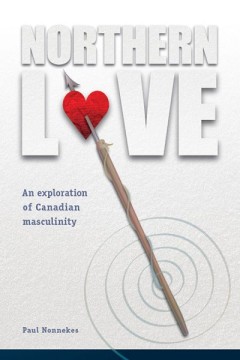
Northern Love An Exploration of Canadian Masculinity
In Northern Love, Paul Nonnekes proposes a conception of love suggestive of a distinctive model of Canadian masclinity. He pursues debates in psychoanalysis and cultural theory in relation to two representative male characters in novels by Rudy Wiebe (A Discovery of Strangers) and Robert Kroetsch (The Man from the Creek).
- Edition
- -
- ISBN/ISSN
- 9781897425220.01
- Collation
- -
- Series Title
- Cultural Dialectics
- Call Number
- 145 pages
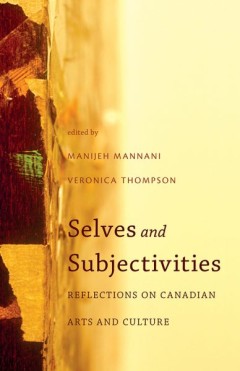
Selves and Subjectivities Reflections on Canadian Arts and Culture
Long a topic of intricate political and social debate, Canadian identity has come to be understood as fragmented, amorphous, and unstable, a multifaceted and contested space only tenuously linked to traditional concepts of the nation. As Canadians, we are endlessly defining ourselves, seeking to locate our sense of self in relation to some Other. By examining how writers and performers have con…
- Edition
- -
- ISBN/ISSN
- 9781926836492.01
- Collation
- -
- Series Title
- -
- Call Number
- 275 pages

Writing the Body in Motion A Critical Anthology on Canadian Sport Literature
Sport literature is never just about sport. The genre’s potential to explore the human condition, including aspects of violence, gender, and the body, has sparked the interest of writers, readers, and scholars. Over the last decade, a proliferation of sport literature courses across the continent is evidence of the sophisticated and evolving body of work developing in this area. Writing the B…
- Edition
- -
- ISBN/ISSN
- 9781771992282.01
- Collation
- -
- Series Title
- -
- Call Number
- 6 x 9, 194 pages
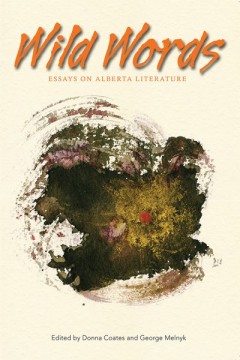
Wild Words Essays on Alberta Literature
As the first collection of literary criticism focusing on Alberta writers, Wild Words establishes a basis for identifying Alberta fiction, poetry, drama, and nonfiction as valid subjects of study in their own right. By critically situating and assessing specific Alberta authors according to genre, this volume continues the work begun with Melnyk’s Literary History of Alberta.
- Edition
- -
- ISBN/ISSN
- 9781897425305.01
- Collation
- -
- Series Title
- -
- Call Number
- 219 pages
 Computer Science, Information & General Works
Computer Science, Information & General Works  Philosophy & Psychology
Philosophy & Psychology  Religion
Religion  Social Sciences
Social Sciences  Language
Language  Pure Science
Pure Science  Applied Sciences
Applied Sciences  Art & Recreation
Art & Recreation  Literature
Literature  History & Geography
History & Geography